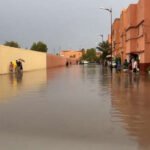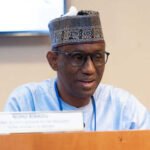The Head of trade at the United Nations Economic Commission for Africa, Stephen Karingi, has urged African countries to increase trade with each other as a way to mitigate the global food crisis.
From persistent drought in East Africa, to high food and energy prices caused by the Russia-Ukraine war, climate change and the Covid-19 pandemic, African countries have been adversely affected by the global food crisis
About 30 million metric tonnes of food imported annually by African countries from Russia and Ukraine will be lost for this year while fertiliser prices have tripled, with Africa facing some two million metric tonnes of fertiliser shortage.
‘Our food markets are experiencing a shock that is coming from outside the continent but why we are experiencing this shock is because we have very low intra-African trade in agriculture and agro-foods’, VOA quoted Karingi as saying.
‘If we had done better and unlocked the full potential of the agricultural sector, we [would not] be experiencing what we are experiencing today.
‘The AfCFTA is offering an opportunity to trade in value-added goods, agro-commodities. It becomes easier for you to trade in wheat flour or maize flour or sorghum flour which is made from one country to another because again you have the same standard and rules of origin are agreed’.
The African Continental Free Trade Area (AfCFTA), which commenced trading in January 2021, is the world’s largest free-trade area, creating a market of 1.2 billion people and the eighth economic bloc in the world.
Meanwhile, the African Development Bank (AfDB) has approved 24 projects that seek to boost food production and empower 20 million African smallholder farmers to end reliance on food imported from Russia and Ukraine.
According to AfDB, the Russia-Ukraine conflict could lead to an additional 1.8 to 2.1 million people in Africa being pushed into extreme poverty in 2022 and 2023, respectively.
Photo source: UNDP Nigeria




